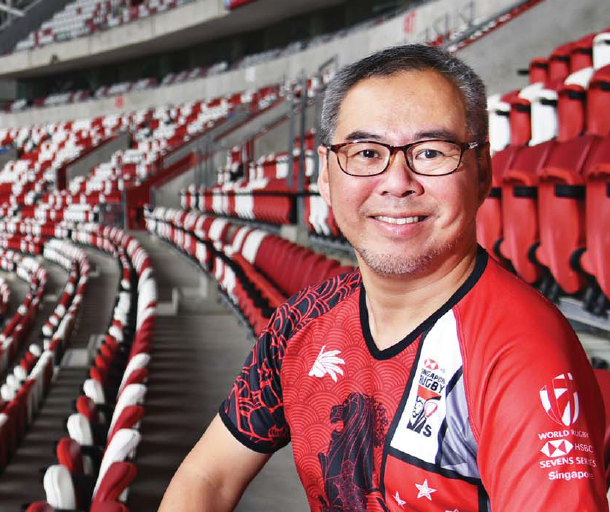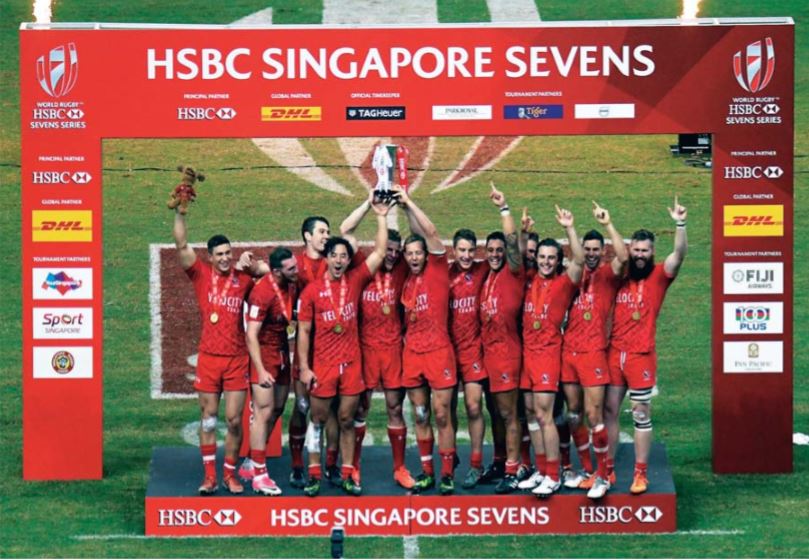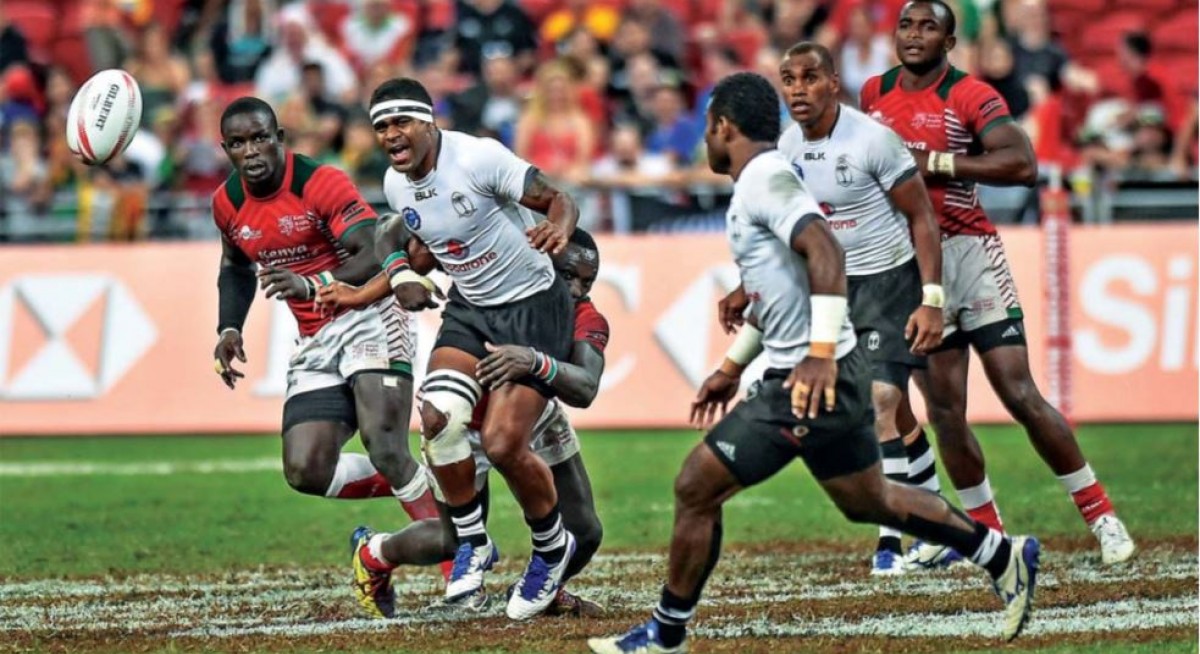
David Lim, executive chairman and managing director of Rugby Singapore Of course, ticketing is an important revenue generator for SG7s. “Our core focus is to fill up the stadium,” says Lim. “In time to come, I [would] like to see the other revenue streams balance it out so that it is not heavily dependent on ticketing revenue, but also sponsorship, rugby carnival brand association and hospitality.” Carnival atmosphere While the rugby game itself may prove sufficient to attract and keep the most ardent fans satiated, it takes more than that to deliver a unique sporting experience. Rugby has a culture of touring among players and fans, Lim says. Hence, to exploit that, the Singapore Rugby Carnival brand was created to enhance the experience. “We see a good proportion of people travelling. They use the WR7s as an excuse to travel to various destinations,” he says. “To make sure that they have a great Singapore experience, we want them to explore the food, culture, retail and other attractions that our country offers. It’s a cornerstone of our strategy in terms of being a world-class event and to provide a uniquely Singaporean flavour to the event that you can’t get anywhere else.” SG7s has tied up with over 200 outlets from 70 establishments across the F&B, retail, entertainment, hospitality and tourism industries to offer promotions and discounts to ticketholders. Notably, Pan Pacific Hotels Group is offering a 20% discount off total restaurant bills at all participating restaurant outlets at Pan Pacific Singapore. This offer also extends to the PARKROYAL chain of hotels. Additionally, ticketholders get a 15% discount for stays at the hotels and serviced suites of both hotel chains. Pan Pacific has been the official hotel partner of SG7s since 2016. In F&B, restaurateur Harry’s is offering a 15% discount off the total bill for regular-priced items across its 19 outlets in Singapore. Burger-loving fans can enjoy 10% off their total bill at six branches of Fatboy’s. Bak kwa king Bee Cheng Hiang is selling their products in pairs at a cheaper price.

Canada beat the US 26-19 in a pulsating final to emerge as champions last year SG7s currently features only male rugby players, but that could change in the future. Lim says Singapore has submitted a bid to host the women’s category under SG7s. If the bid is successful, SG7s could be extended to a three-day event from the current two-day event. This is likely to present more commercial opportunities. Will Rugby Singapore introduce other rugby tournaments in Singapore? Lim says Singapore has in the past hosted a one-off match between Scotland and Italy. It could organise more oneoff matches, for instance, a game between New Zealand’s All Blacks and the English team. However, one-off events are difficult to monetise on a sustainable basis, says Lim. “It’s like hitting the jackpot. It doesn’t build for the future. Annual events like SG7s help to build a legacy. It also helps to build the local game and inspire the next generation of players. Moreover, it produces a commercial stream that enables me to reinvest in the sport.” What about establishing a rugby league? Lim reckons Singapore is not yet ready for that. “The challenge is filling the stadium,” he says. “You need an audience and fans. Are you able to fill a 55,000-seat stadium week in, week out? I dare say that even the local football league has not filled up the stadium, what more rugby, which is less popular among the local community. Hence, I say we are not ready.” Still, Lim sees a good future for the commercialisation of rugby as a tournament. “Rugby is an Olympic sport. If we are not an Olympic sport, we are not relevant,” he says. Lim says he often dreams of inspiring the next Joseph Schooling equivalent in rugby through sporting events like SG7s. The swimmer is an Olympic gold medallist. “If we don’t have heroes like this on our own shores, walking into our school fields, playing and doing clinics with our own boys, we will never inspire young Singaporeans to rise up as world-class rugby players. Hence, it is important to have a world-class event here to inspire youngsters.” Lim, who is a lawyer by training, worked in sports broadcasting for ESPN Star Sports in the mid-1990s. He also played an instrumental role in launching Mission Hills in China — the world’s largest golf club — and the Asian Golf Tour. Apart from the business of sports, Lim had a stint as a marketing consultant for an e-commerce firm. If his resume is anything to go by, Lim appears to be the right person to make SG7s a successful sporting event. “We are trying to take this property and really commercialise, monetise it, and make it relevant to the whole business of big events in Singapore by putting the product out there and making it relatable to corporates.” This article appeared in Issue 826 (Apr 16) of The Edge Singapore. Subscribe to The Edge at https://www.theedgesingapore.com/subscribe








